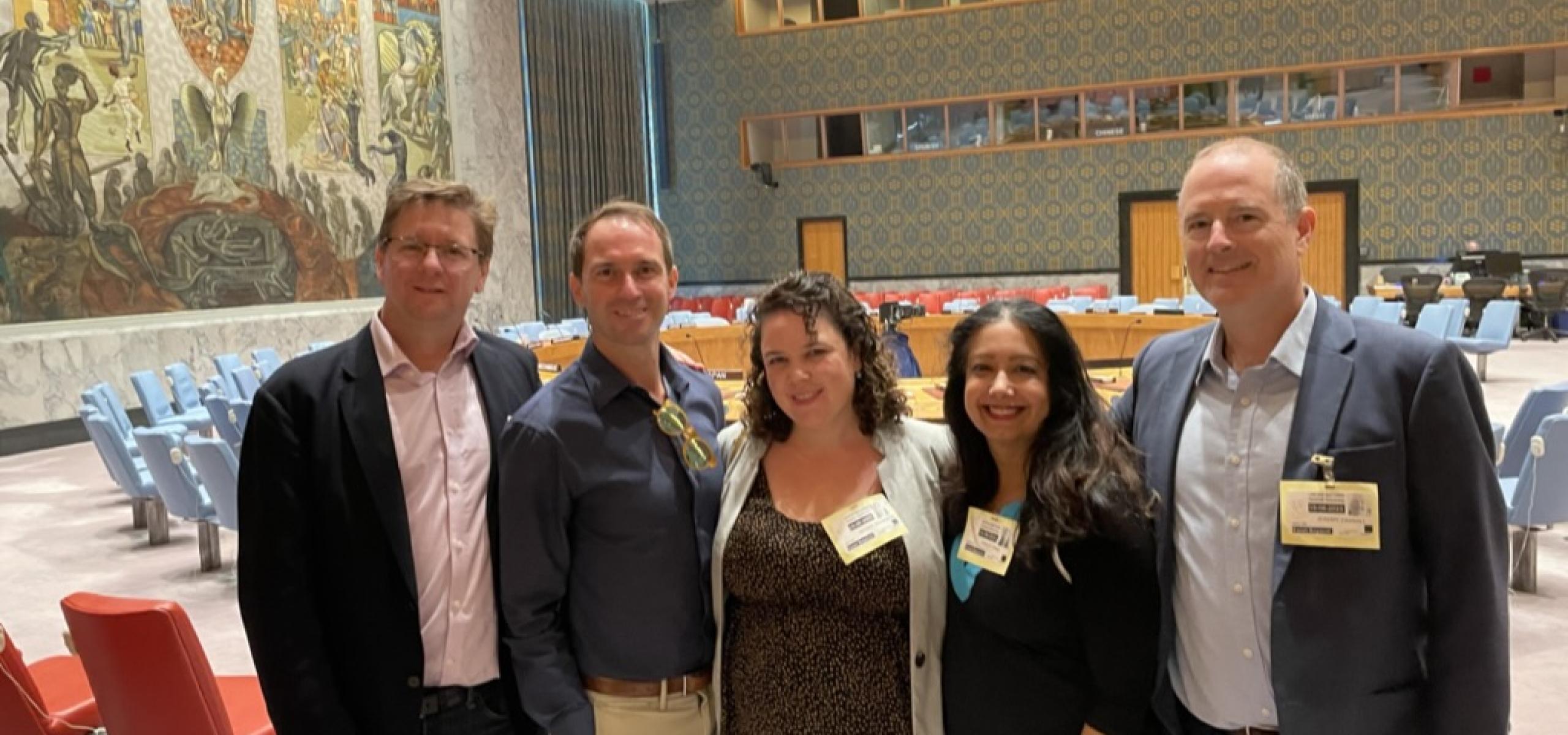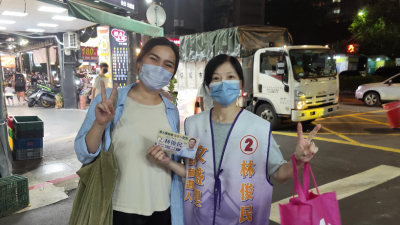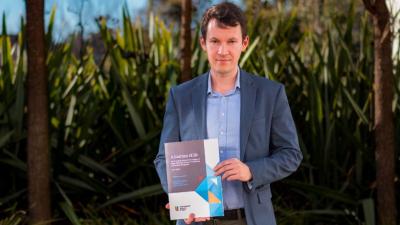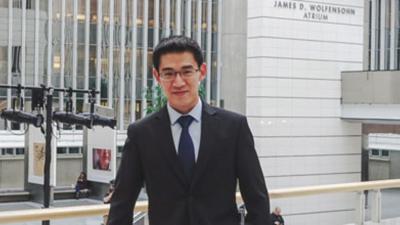
Professors Danchin, Ford, Rana, Farrall and Associate Professor Saunders at the UNSC.
The insights and perspectives from people working in our case study countries are incredibly important as we seek to understand how populism – and the drivers that cause it – has changed or shaped the way States interact with international institutions.
The Centre for International and Public Law sponsored two exciting research events in the US over the Australian winter. The events were part of larger fieldwork projects undertaken by two Australian research teams, both funded by Australian Research Council Discovery Project grants.
The first event, held at the Australian embassy in Washington DC, was a workshop on the ARC Discovery Project ‘Reconceiving Engagement with International Law in a Populist Era’ (‘REIL-Pop’). The ANU Chief Investigators Professor Jeremy Farrall, Professor Jolyon Ford and Associate Professor Imogen Saunders were joined by their Indiana University co-investigator Professor Shruti Rana to meet with representatives from the Australian Government and US civil society.
The project, which will run for five years, has four case study countries: the United States, the United Kingdom, India and the Philippines. This roundtable was the first of several planned to gather insights from diplomats, policy makers and civil society actors working on the ground in the countries. CIPL Director Associate Professor Imogen Saunders explained how valuable the workshop was:
‘The insights and perspectives from people working in our case study countries are incredibly important as we seek to understand how populism – and the drivers that cause it – has changed or shaped the way States interact with international institutions. In this workshop we were able to gain feedback on our initial conceptions of the relationship between populism and international law, and learn more about the way that populism has affected US decisions both domestically and internationally.’
The ANU REIL-Pop team also visited the United Nations Security Council with Professor Rana and their other co-investigator Professor Peter Danchin (University of Maryland) to undertake fieldwork on engagement with this key international institution, and held a workshop at the University of Maryland in Baltimore. Professor Jolyon Ford explains:
“We were able to take the insights gained at our DC workshop to enrich our conversations with UN legal advisors and representatives from Non-Governmental Organisations in New York. This, combined with the valuable time spent with our US co-investigators, made for a rich and productive trip. We are eager to build on this work over the coming years.”
The second event, held at the Australian mission to the United Nations in New York on Thursday 22 June, was a roundtable on the ARC Discovery Project ‘Leveraging power and influence on the United Nations Security Council (UNSC): the role of elected members’ (the ‘E10 Influence Project’). Participants at the roundtable included representatives of past, current and incoming elected members of the UNSC, including Ethiopia, Ireland, Kenya and Mexico (past), Albania, Brazil, Ecuador, Japan, Malta and Switzerland (current), and Guyana, Slovenia and South Korea (incoming). The roundtable also included representatives of high-profile Non-governmental Organisations with a focus on the UN Security Council, including the International Crisis Group, the International Peace Institute and Security Council Report, as well as representatives of the Australian Mission to the United Nations.
During the joint CIPL-Australian mission roundtable, E10 Influence Project members Professor Jeremy Farrall (ANU), Associate Professor Christopher Michaelsen (UNSW) and Professor Jochen Prantl (ANU), presented an original analytical framework of E10 influence, explaining how E10 members build and exercise influence on the Security Council. They also shared initial draft policy proposals on how elected members can enhance their capacity to exercise influence on the UN Security Council during their brief 2-year terms. Subsequent discussions focused on how the capacity of E10 members has been impacted by the significant challenges presented by the COVID-19 pandemic, as well as increased friction between the five permanent members of the UNSC due to conflict in Ukraine.
Professor Jeremy Farrall reported that: ‘The CIPL-Australian Mission roundtable was a highly successful and rewarding event. The E10 Influence Project Team learned a lot from the engaged and insightful comments of both diplomats at the coalface of Security Council decision-making, as well as from NGO commentators who follow the Council’s activities closely on a daily basis. The main takeaways for us were that our analytical framework of influence is even more relevant and urgent when there is friction between the permanent five, and that E10 members are thirsty for our concrete proposals to enhance their capacity to exercise influence on the Security Council. We are most grateful to CIPL and the Australian Mission for making the roundtable possible’.





